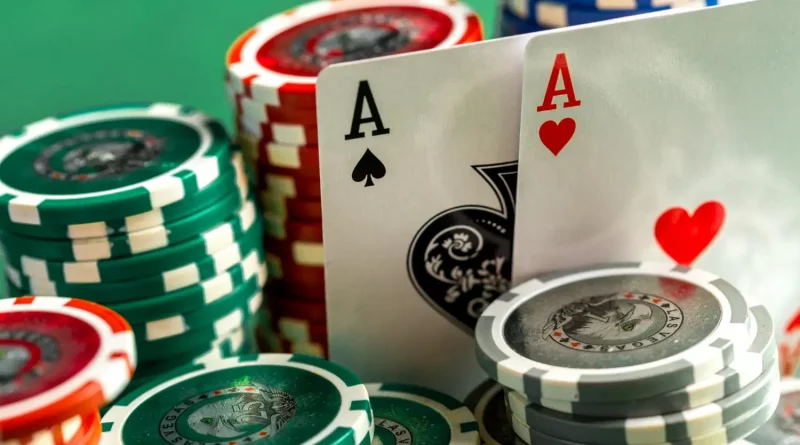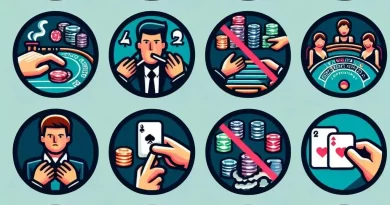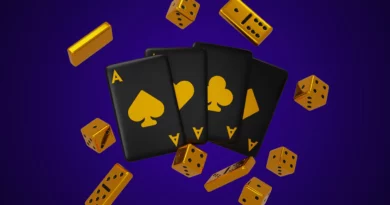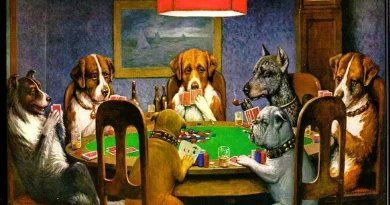What does ev mean in poker?
Poker EV, also known as the expected value in poker, is an essential concept that provides insights into your actions’ anticipated long-term results. So, when you hear experienced players discussing the dynamics of the poker value chart and what EV is in poker, they’re actually talking about this fundamental concept planted deep within poker mathematics.
What is EV in Poker
In its simplest form, EV poker is all about decisions. Specifically, the term refers to the average amount of money a particular decision is expected to win or lose over the long haul. There is an inherent connection between EV in poker and the underlying poker value. To explain this relationship, suppose you’re in a game scenario where you’ve computed the EV for a specific scenario, whether through judgment or using a poker EV calculator. It’s this value that tells you what the long-term outcome would look like if you repeatedly made that exact decision in that same situation.
Poker Mathematics
Poker is not all about bluffing and betting; there’s a lot of math involved as well. One of the crucial elements in poker mathematics is calculating the expected value. But how to calculate EV in poker?
Formula of EV in poker: [(% chance of winning x potential payout) – (% chance of losing x amount of loss)]
| Poker Scenario | Chance of Winning (%) | Potential Payout ($) | Chance of Losing (%) | Amount of Loss ($) | EV ($) |
|---|---|---|---|---|---|
| Scenario 1 | 60 | 50 | 40 | 30 | (60% of 50) – (40% of 30) = 10 |
| Scenario 2 | 70 | 100 | 30 | 50 | (70% of 100) – (30% of 50) = 45 |
| Scenario 3 | 50 | 40 | 50 | 40 | (50% of 40) – (50% of 40) = 0 |
| Scenario 4 | 80 | 80 | 20 | 60 | (80% of 80) – (20% of 60) = 52 |
| Scenario 5 | 30 | 60 | 70 | 40 | (30% of 60) – (70% of 40) = -6 |
These examples help demonstrate how the expected value can differ greatly depending on the potential payout and the likelihood of winning or losing. Remember, understanding the expected value in poker crucially influences strategic decisions taken during a game.
EV Calculator
The Expected Value Calculator on Calculatored helps simplify the process of figuring out the expected value in a multitude of different scenarios, including poker. This user-friendly tool lays out the complex concept of EV in a comprehensible format, making it easier for players to understand whether their decisions in the game bring long-term profits (positive EV) or losses (negative EV).
Calculatored
To use this calculator, you simply input relevant numbers that represent outcomes and their respective probabilities. The calculator does the rest of the work for you by calculating the product of each outcome and its probability, then adding these products up to provide the total expected value. By experimenting with different probabilities and outcomes, you can understand how each alters the expected value.
Please note, that while this tool is helpful in understanding the basic concept of expected values and makes preliminary computations easier, it is not specific to poker. The complexity of real-life poker involves factors like unknown opponent cards, betting structures, and changing gameplay dynamics, which are difficult to quantify in a simple calculator. To accommodate these factors, there are poker-specific software solutions available, such as PokerStove and HoldemManager, which incorporate a host of poker-related variables to give a more realistic and precise expected value.
Strategy in poker
A decision’s value in a particular poker situation is often defined as the Average Expected Value, calculated using the potential outcomes of that decision, the chances of each outcome taking place, and the value associated with each outcome. It’s all about making EV-positive decisions – moves that are expected to gain money over time.
This is where strategic thinking enters the equation. Incorporating EV into your poker strategy could fundamentally alter your approach to the game. For instance, understanding your opponent’s tendencies can assist you in making more informed, EV-positive decisions.
For example, if you observe that your opponent tends to bluff often, then calling their bet, even with a lesser hand, may result in a positive EV in the long run. On the other hand, if your opponent typically plays safe and only bets with strong hands, going against them with a weaker hand can lead to a negative EV, hence suggesting a fold could be a more strategic decision.
However, bear in mind that poker involves elements of uncertainty – you never know the cards the opponent holds. Therefore, your strategy should be continually updated based on the information you gather during the game, so the EV of certain decisions can keep changing, requiring constant re-evaluations.
Summary
In conclusion, using online calculators, such as the expected value calculator from Calculatored, can be a beneficial starting point for understanding the importance of EV in poker. These tools can help players grasp the correlation between their decisions and potential results in the long run, thereby aiding in the development of a more strategic and calculated approach to their poker game. Remember, understanding EV is crucial to success in poker, and these calculators can be a valuable tool in your poker arsenal.
FAQ
The formula to calculate EV in poker is [(% chance of winning x potential payout) – (% chance of losing x amount of loss)].
A poker EV calculator simplifies the process of figuring out the expected value in various scenarios by calculating the product of each outcome and its probability. To use the calculator, you should input relevant numbers representing outcomes and their respective probabilities.
EV-positive decisions in poker are anticipated to result in long-term profits, while EV-negative decisions are expected to lead to losses over a prolonged period.
By understanding your opponent’s tendencies, you can make more informed and EV-positive decisions. For example, if your opponent tends to bluff often, you might find that calling their bet – even with a weaker hand – could yield a positive EV in the long run.




